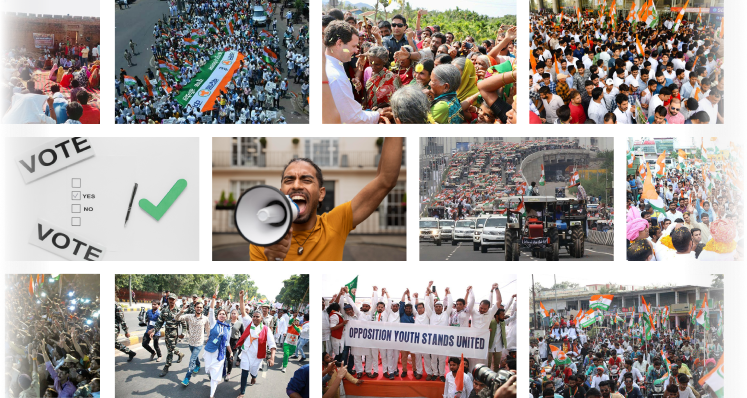Who We Are
The Indian Youth Congress (IYC) is the youth wing of the Indian National Congress (INC), and its vision and mission are closely aligned with the broader goals and principles of the INC. The IYC's primary focus is on engaging and mobilizing young people in India to participate in the political process and work towards the welfare and development of the nation Led by a dynamic team of leaders, the INC continues to champion the rights and aspirations of the people of India. We are dedicated to addressing the nation's challenges, advocating for inclusive policies, and fostering unity and harmony among our diverse population.









